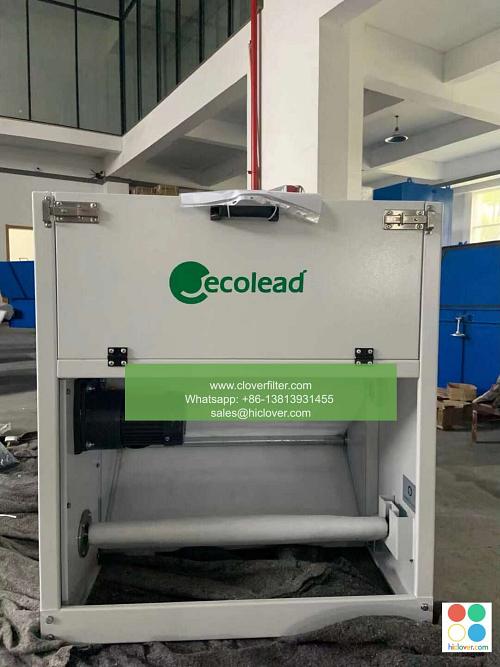Food Safety and Quality Control: The Role of Automatic Roll Air Filters in Food Labs
Food safety and quality control are of paramount importance in the food industry, as they directly impact the health and well-being of consumers. Food laboratories play a crucial role in ensuring the safety and quality of food products by conducting various tests and analyses. One of the critical components of a food laboratory is the air filtration system, which helps to prevent contamination and maintain a clean environment. In this context, automatic roll air filters have emerged as a vital tool in food labs, providing an effective and efficient way to maintain air quality.
Automatic roll air filters are designed to capture airborne particles, including dust, pollen, and microorganisms, which can contaminate food products and compromise their quality. These filters are typically installed in the air handling systems of food labs and work by drawing in air and passing it through a filter media, which traps the particles. The filtered air is then released back into the laboratory, creating a clean and safe environment for food testing and analysis.
The use of automatic roll air filters in food labs offers several benefits. Firstly, they help to prevent cross-contamination, which is a major concern in food laboratories. By capturing airborne particles, these filters prevent the spread of microorganisms and other contaminants, ensuring that food products are not compromised during testing and analysis. Secondly, automatic roll air filters help to maintain a clean and safe environment, which is essential for food safety and quality control. By removing airborne particles, these filters reduce the risk of contamination and ensure that food products are handled and tested in a hygienic environment.
Another significant advantage of automatic roll air filters is their ability to improve indoor air quality. By capturing airborne particles, these filters help to remove allergens, irritants, and other pollutants from the air, creating a healthier environment for laboratory personnel. This is particularly important in food labs, where personnel may be exposed to a range of airborne contaminants, including dust, pollen, and microorganisms.
In addition to their technical benefits, automatic roll air filters also offer several practical advantages. They are relatively low maintenance, as they can be easily installed and replaced. Additionally, they are cost-effective, as they help to reduce the risk of contamination and improve indoor air quality, thereby reducing the need for costly retesting and reputational damage.
The importance of automatic roll air filters in food labs is further emphasized by regulatory requirements. Food safety regulations, such as those set by the FDA and USDA, require food laboratories to maintain a clean and safe environment, which includes the use of effective air filtration systems. By installing automatic roll air filters, food labs can demonstrate their commitment to food safety and quality control, while also ensuring compliance with regulatory requirements.
In conclusion, automatic roll air filters play a vital role in food labs, providing an effective and efficient way to maintain air quality and prevent contamination. By capturing airborne particles, these filters help to prevent cross-contamination, maintain a clean and safe environment, and improve indoor air quality. As such, they are an essential component of any food laboratory, and their use is critical to ensuring the safety and quality of food products.
FAQs
Q: What are automatic roll air filters, and how do they work?
A: Automatic roll air filters are designed to capture airborne particles, including dust, pollen, and microorganisms. They work by drawing in air and passing it through a filter media, which traps the particles. The filtered air is then released back into the laboratory, creating a clean and safe environment for food testing and analysis.
Q: Why are automatic roll air filters important in food labs?
A: Automatic roll air filters are important in food labs because they help to prevent cross-contamination, maintain a clean and safe environment, and improve indoor air quality. They are also essential for ensuring compliance with regulatory requirements and demonstrating a commitment to food safety and quality control.
Q: How do automatic roll air filters improve indoor air quality?
A: Automatic roll air filters improve indoor air quality by capturing airborne particles, including allergens, irritants, and other pollutants. By removing these particles from the air, they create a healthier environment for laboratory personnel and help to reduce the risk of respiratory problems and other health issues.
Q: Are automatic roll air filters easy to maintain and replace?
A: Yes, automatic roll air filters are relatively low maintenance and can be easily installed and replaced. They are also cost-effective, as they help to reduce the risk of contamination and improve indoor air quality, thereby reducing the need for costly retesting and reputational damage.

